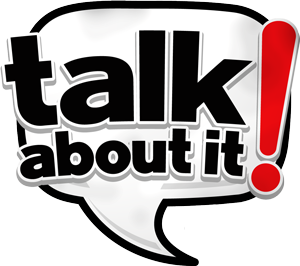For the Siblings of People with Epilepsy with Sarah Jane Morris & Brien J. Smith, M.D.
OK, we admit it — our brothers and our sisters can sometimes be annoying, and they think the same thing about us, too. But they are also our best friends and hopefully always there for us through thick and thin. That includes if we have a seizure — or if they do. If you have epilepsy, count on your siblings to help you. And if they have epilepsy, you need to know what to do to help them if they have a seizure. But most importantly, you need to be a friend, especially if sometimes you or they feel lonely or sad.
EXT. DAY. SUBWAY STATION Platform.
Actress SARAH JANE MORRIS: If your brother or sister has epilepsy, we want you to know how important YOU are. They may never say it, but know that your support means a lot. If you have any questions or wonder how you can help more, don't be afraid to talk about it.
Greg Grunberg interviews Brien Smith, M.D.
Greg: How do you talk to families that come to you and deal with the sibling issue?
Brien Smith: Well, you've done some great things with what you've done with your family, and you're right. Some siblings feel that they're not getting the attention. But, over time you'll see. They are so key to maintaining the quality of life of that patient or of the brother or sister having the seizures. You know where it really comes in is in the school, because they are their "right-handman," they support them, they look out for them, and explain to other kids, and they don't realize the difference they're making. They will down the road, but maybe right now, they don't. Even though they may complain at home, they're there, with them, and it makes a big difference.
Greg: Yeah, it's true. You're always trying to look at the silver lining, the positive things, which we see, all the time. Jake teaches me the resilience of never letting anything stop him; he never lets his seizures or epilepsy as an excuse for anything. He really just tries to do everything. So I'll never have a bad day. People will say, "You're so positive all the time!" I'm like, well, "You saw what we deal with, everything else in life is a piece of cake. I look at Ben, and Sam, and they are heroes. And the other thing that's a huge silver lining is, as you're growing up and you're a sibling, and I see this in them, they're so tolerant of anybody that has special needs. You know, Ben has a kid with autism in his class, and he's a normal friend of his, no difference at all. And Ben will stand up for that kid and will obviously stand up for Jake, but you're right - they look out for each other. (joking) We do have those moments when they're playing XBox, and Jake has a seizure, and my kids will go (calls) "SEIZURE!" and then try to score a couple extra points before, you know... all the time... (serious) But hopefully it's one of those things where hopefully, we're all learning and we're hopefully becoming better people for what we're going through. (indicates guest) Dr. Brien Smith everybody... (applauds) C'mon,Talk About It!
Sarah: I'm Sarah Jane Morris. Thank you so much for talking about it.
 Talk About It!
Talk About It!